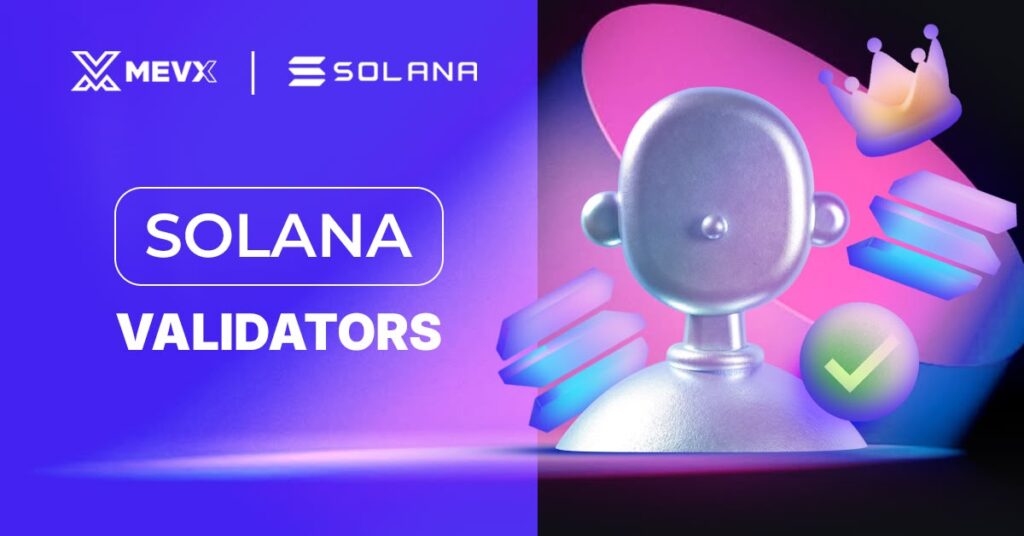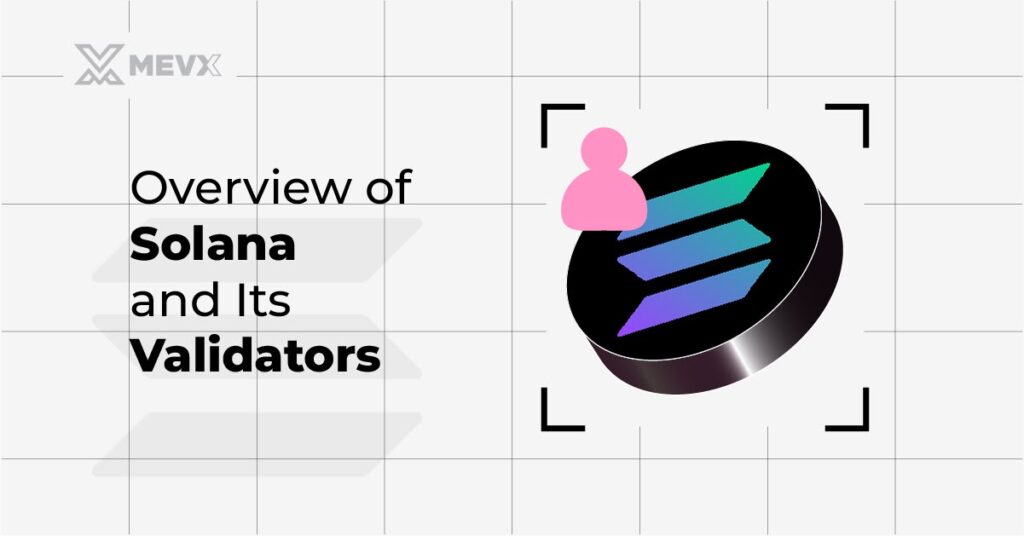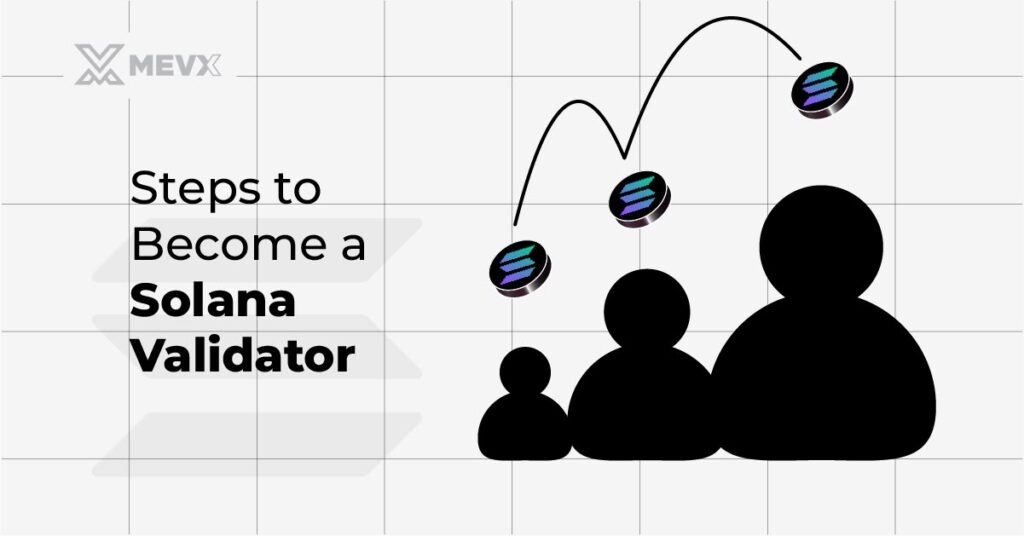Solana has its operations supported by validator nodes that help secure transactions and ensure network integrity. Solana utilizes Proof of Stake (PoS) and Proof of History (PoH) to enhance performance. Validators have the role to secure the network as well as obtain SOL rewards, but to be a node requires technical knowledge and spending funds. The basics of becoming a Solana validator and running a node are described in this guide.

Introduction to Blockchain and Validator Nodes
Blockchain refers to a distributed, decentralized ledger technology that stores transactions on multiple computers, making them transparent, secure, and unalterable. Transactions are collected into a block, linked together in a chain, creating the blockchain. Validator nodes are an essential part of this system, certifying and authenticating transactions for compliance with network standards prior to posting in the blockchain.
Different blockchains make use of different consensus mechanisms through which the validators are selected. Bitcoin, for example, uses Proof of Work, where nodes are racing against each other to solve computational puzzles to verify transactions. Solana, on the contrary, makes use of Proof of Stake, along with Proof of History, but selects its nodes on a more efficient basis to enable high levels of transaction throughput.
Overview of Solana and Its Validators

Solana is a high-performance blockchain platform aimed at solving scalability problems with a transaction rate of up to 50,000 TPS and sub-second confirmation rates. It utilizes a new design that merges PoH with PoS to facilitate cheap and fast transactions. The native token, SOL, is employed as a transaction fee as well as by validator nodes for staking.
Solana validators are nodes that participate in transaction processing, consensus, and voting on the validity of a block to secure and decentralize the network. They are compensated by the network via its inflation rate and transaction fees, which incentivize individuals to participate. The network boasts more than 1,000 independent validators currently, indicating its decentralization.
Benefits of Being a Solana Validator
Becoming a Solana validator offers several benefits:
- Earning Rewards: Validators are rewarded in terms of block reward, as well as fees from transactions proportional to stake weight and performance. For instance, leaders receive a share of the inflation, while voters get rewarded upon voting on a valid block.
- Contributing to Decentralization: Validators help decentralize network control by hosting a node, making the network more secure and stable.
- Learning and Engagement: Operating a validator provides end-to-end knowledge of blockchain operation in addition to enabling community involvement, i.e., being a part of Discord to get updates.
Requirements to Become a Solana Validator
Being a validator means fulfilling certain prerequisites:
- Hardware Requirements: You would need high-end hardware, perhaps something such as:
- CPU: High-performance, e.g., Intel Core i7 or higher.
- RAM: At least 16 GB, preferably 32 GB or more.
- Storage: NVMe SSDs, with 1 TB for the ledger and 500 GB for accounts, due to high IOPS needs.
- Network: Reliable, high-bandwidth, low-latency connection.
- These specifications ensure the node can handle Solana’s high throughput, and most operators host with dedicated hosting services for reliability.
- SOL Token Requirements: Validators need SOL for:
- Vote Account: A rent-exempt reserve of approximately 0.02685864 SOL.
- Voting Costs: Up to 1.1 SOL per day for vote transactions, with costs varying by network activity.
- Staking more SOL enhances the likelihood of being selected as a leader, but there is no minimum amount required to run a node.
- Technical Skills: Linux system administration and command-line interface proficiency are needed because the validator software runs on Linux. Understanding Solana tools and server maintenance, e.g., updates and backups, is also a necessary skill.
Steps to Become a Solana Validator

The procedure has several steps, discussed as follows:
- Set Up the Environment:
- Choose a hosting provider like AWS or GCP, or set up your own server depending on hardware needs.
- Install a Linux distribution such as Ubuntu and install the Solana validator client from the official repository.
- Create a Validator Account:
- Create a keypair using Solana’s command-line utility, containing a public key to identify nodes and a private key to be used for signing transactions.
- Create a voting account and transfer the required SOL to reserve the rent exemption and voting fee from a base wallet.
- Configure and Run the Validator Node:
- Initialize the validator client using keypair, vote account, and network (e.g., mainnet-beta).
- Initiate the node so that it synchronizes with the Solana network and achieves consensus.
- Monitor and Maintain the Node:
- Employ monitoring tools to ensure performance, uptime, as well as efficiency.
- React to all updates actively so that you are updated on both compatibility, as well as security aspects of products.
- Implement protection methods such as backups and firewalls in order to safeguard not only the node but also the SOL.
It would be ideal to test these on devnet or testnet first because these environments allow for testing without risking mainnet assets, thus allowing you to learn without incurring any risk to yourself.
Managing a Solana Validator
Operating a validator is an ongoing task:
- Monitoring Performance: Regularly check the node condition to determine whether it is operating satisfactorily in terms of uptime, as well as transaction response time.
- Handling Updates: Stay updated on Solana updates and apply them when necessary in order to ensure that the network remains secure and operational.
- Security Measures: Safeguard the server from hackers, ensure strong passwords, and incorporate intrusion protection software.
Earning Rewards as a Validator
Validators earn rewards through:
- Block Rewards: Issued by the network as compensation for generating blocks and are distributed to leaders and voters.
- Transaction Fees: These are the fees paid by leaders to add in transactions in the blocks.
Reward calculation depends on:
- Stake Weight: The more investment you have, the greater the chances that you will be chosen as the leader, hence, more awards
- Commission: Validators can earn a commission on staked assets, which can earn them money.
- Performance: More uptime incentivizes stable nodes, while worsening performance decreases incentives.
For example, returns are highly disparate, and validators may make millions of dollars a year from delegating stakes, but others may lose money through high fees (Solana Compass).
Challenges and Considerations
Becoming a validator involves challenges:
- Costs: High, costing tens of thousands of dollars annually in terms of hardware, hosting, and SOL voting costs, with a daily fee of about $150 at the current SOL prices.
- Security: Nodes are a potential hacking target requiring robust security measures to protect SOL and network integrity.
- Time Commitment: Requires constant monitoring and maintenance, which can be time-intensive, especially for high uptime guarantees.
- Community Involvement: Engaging actively in forums and Discord, e.g., Solana community, has a positive effect on support as well as keeping up to speed on network news.
Conclusion
Solana validating is an excellent option to contribute to a high-performance blockchain and receive SOL, yet it involves significant investment in terms of hardware, SOL, and technical expertise. It is essential to understand the role, the prerequisites, and the daily administration to succeed. Prospective validators may wish to begin on testnet, investigate the costs, and engage with the community to navigate this demanding yet valuable role.
Share on Social Media:
